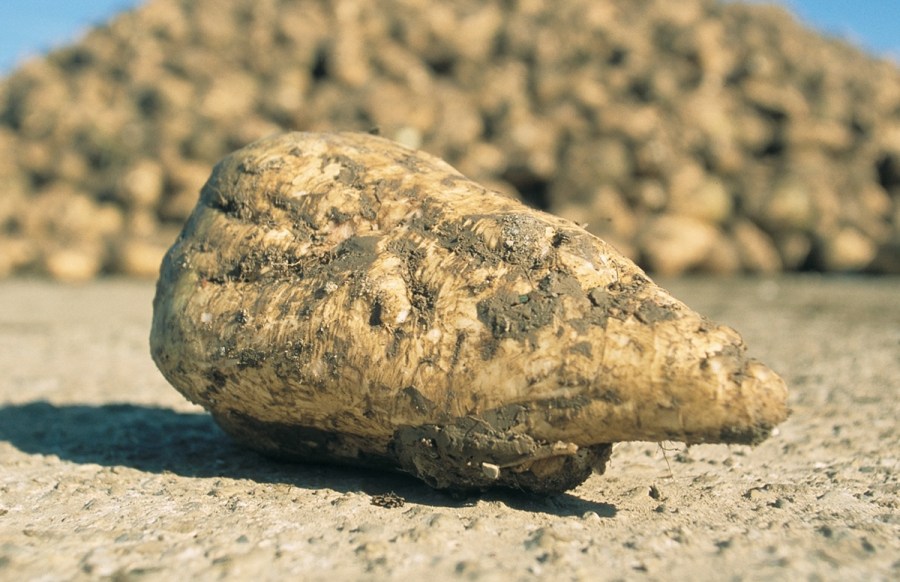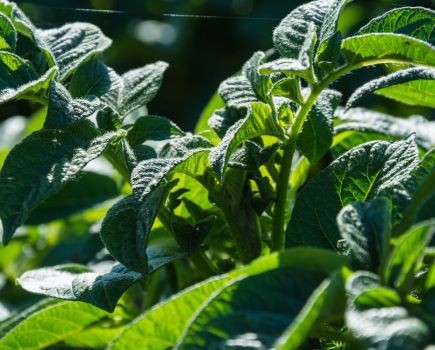At the beginning of April, BBRO and BSPB announced the new Recommended List for sugar beet, which saw nine new varieties added and four withdrawn. CPM reports.
It remains vital that new genetics are constantly brought to market.
By Lucy de la Pasture
The new graduates to the BBRO/BSPB Recommended List offer more choice at a time when variety selection goes hand in hand to help counter some of the pest and disease problems when growing a crop with a decreasing range of pesticide solutions.
While yield is still an important trait, it’s no longer the only consideration in a more integrated approach to planning the next crop. Ongoing investment in research and development is bringing new varieties to improve pest and disease resistance while also increasing yields, says BSPB chief executive, Sam Brooke.
“Plant breeders have also demonstrated these varieties can improve nitrogen and water use efficiency. These benefits all count towards ensuring the resilience of UK domestic sugar production in the coming years.
“In what’s been a challenging couple of years, it remains vital that new genetics are constantly brought to market to help growers increase yields by tackling diseases such as virus yellows. Nine new varieties have been added to the Recommended List this year, complementing the 13 proven varieties already on the list. This is testament to the tenacity of plant breeders and their ability to address the issues and concerns of sugar beet growers throughout the UK.”
The National List and Recommended List are now administered separately to encourage new and improved genetics to reach the UK market as quickly as possible. “By breeding varieties that can increase yields, whilst reducing our reliance on the use of chemistry and nitrogen, we can help to reduce costs and safeguard UK sugar beet production.
“More robust varieties will help to challenge diseases, but breeders need the security that the UK market can be sustainable in order to continue the high level of investment in R&D,” she adds.
In yield order, the new additions are Harryetta KWS, Annatina KWS, BTS3610, Morgan, Stewart, Tawny, Adder, Button and BTS Smart 9485 and the 2023 list now has 22 varieties for growers to ponder.
The headline new trait additions are found in Button and Harryetta KWS (the second highest yielding variety on the list), which are tolerant to BCN, and BTS Smart 9485, which is the first ALS-herbicide tolerant variety from Limagrain.
Mike May, chairman of the RL board, gives a brief summary of the trials in 2021, which he says were an improvement on the 2020 season, when trials were badly hit by virus yellows. As a result, the yield of the control varieties in 2021 was 112.0 adjusted tonnes/ha compared with 105.8 in 2020.
“The weather after drilling led to varying emergence and two trials were lost because of uneven stands. The number of bolters from early sown trials was higher than in 2020, but lower than 2019, while the normal sown trials (drilled after mid-March) had similar or lower bolting than the previous two years,” he says.
“The autumn weather was generally good, but it was still wet at times so a careful watch was required to ensure trials were harvested under good conditions.”
Looking at the new variety additions in more detail, three come from the Strube stable. “All of these varieties have successfully come through the comprehensive UK trials programme,” says Mark Culloden, managing director at Strube UK. “They’ve performed consistently and reliably during the challenging growing conditions we’ve experienced in the UK over the past three seasons and all three varieties are rhizomania resistant.”
Topping the yield of the three Strube additions is Morgan which Mark says performs well on all soil types with good sugar yields and good establishment. “It also has good sugar contents and a larger top for full crop canopy coverage.
“Stewart is also a good all-round performer, with good sugar yields and above average sugar content and it’s suitable for early drilling with low bolting figures,” he comments.
Bringing BCN tolerance to the field is Button, says Mark. “It’s performed well in other EU countries where BCN is a bigger problem than here in the UK and it has very low early and normal sown bolting figures with one of the highest establishment scoreson the RL.”
Stalwart breeder KWS has two new additions to the RL. Of these, Haryetta KWS has the combination of characteristics that will earn it a place on every farm, believes Ben Bishop, UK country manager for KWS.
“As the highest-yielding BCN tolerant variety on the 2023 RL and with strong all-round disease resistance, Haryetta KWS gives growers an appealing third BCN tolerant choice alongside other KWS varieties Daphna and Katjana KWS,” he says. Lacewing, added in 2020 and new addition Button also offer BCN tolerance.
A low bolting score of 15 in the normal sowing window and an establishment score of 98.3% underlines its broad appeal, he suggests.
“On all the important metrics, Haryetta KWS is a strong contender that will help growers spread the variety risk without compromising yield potential or the need to accept poor disease resistance,” adds Ben.
The second addition from the breeder, Annatina KWS, offers a sugar content of 17.4%, the joint second highest on the list, and zero bolters in the normal sowing window.
“At 102.1% of controls, Annatina KWS is low-risk variety with good resistance to rust and cercospora leaf spot. It’s another sound choice for those wanting a dependable, low-risk and yet high-yielding variety,” he says.
Limagrain UK also has two additions to the 2023 RL. These two very different varieties reflect the breadth of the Betaseed breeding approach of producing varieties that today’s growers are looking for, offering good security for on-farm performance, says Ron Granger, arable technical manager for Limagrain UK.
He believes BTS 3610 offers one of the best all-round packages for delivering on-farm performance through a combination of a competitive yield, a high sugar content and good disease resistance, whereas BTS SMART 9485 is the highest yielding ALS herbicide resistant variety – a step up over current ALS genetics.
“While BTS 3610 sits in the pack for top yielders at 101.6% (adjusted tonnes) and has one of the highest sugar contents of 17.3%, this variety is about more than just yields,” says Ron.
“We know growers are increasingly looking for on-farm security in the varieties they choose to grow, and to offer this a variety must have the right combination of agronomics and a robust disease resistance profile.
“With BTS 3610, this is exactly what is on offer – it has a very good disease resistance package with a rating of 5.9 for rust, 5.3 for powdery mildew and a 6.6 for cercospora. This robust disease resistance package is backed up by its high untreated yield of 101.2% in trials – demonstrating breeders focus on producing more resilient varieties for the marketplace.”
BTS 3610 has a flexible drilling window, suitable for both the earlier and normal drilling dates and is rhizomania tolerant.
BTS Smart 9485 is Betaseed’s first Smart herbicide resistant variety and is the highest yielding variety in this specialist category.
“Its yields of 96% are very encouraging for an ALS-resistant variety, as there’s been a bit of yield lag to date. It reflects an improvement over current ALS genetics which will be welcome news for growers in this category,” says Ron.
“It has solid on farm characteristics with good bolting resistance. When sown in the early drilled slot before 5 March, it has 2327 bolters and zero in the normal sowing slot.”
“BTS Smart 9485 also offers a good disease resistance profile with a 4.9 for rust, 5.9 for powdery mildew and 6 for cercospora. Again, an improvement over previous varieties that were on the List last season in this category,” he says.
From the Sesvanderhave stable are new varieties Adder and Tawny. The recommendation reflects the result of a decade of breeding and an extensive UK trials programme where both varieties have delivered consistent and resilient performance, according to Ian Munnery, UK director for the company.
In recent years, extensive field trialling in the UK has sought to mirror commercial practice, he explains. “In our field trials we use Sesvanderhave primed and pelleted seed, drilled to a stand, and integrate different fertiliser regimes and spray programmes. This allows us to screen genetics and seed treatments to help deliver the increasing need for resilience in the sugar beet crop.
“Investment in near infra-red spectroscopy in our mobile tarehouse means we can now analyse sugar content as we harvest, accelerating the selection of promising genetics and keeping down trial costs,” he adds.




